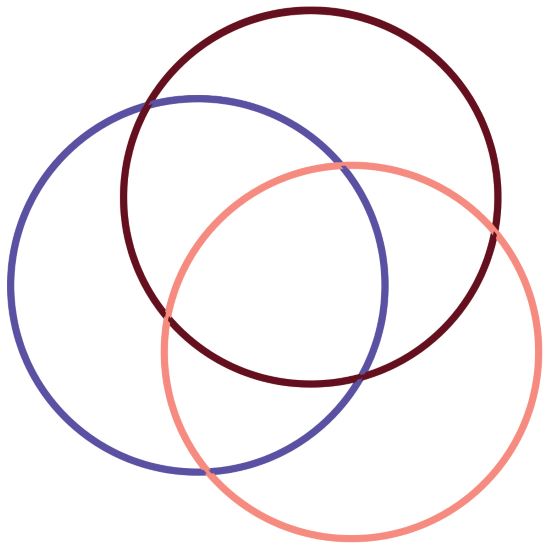INTERSECT
Why think about equitable cities, landscapes and communities?
The economic, social, cultural, technological and ecological differences that characterize cities are exacerbated or mitigated by how we imagine, build and live in them. Such differences can easily lead to inequalities and injustices that are invisible to those not affected and slippery to grasp.
Therefore, there is an urgent need to be able to identify and articulate differences, injustices, inequalities and inequities and to understand their impact.
Examples:
- Life expectancy is different for those living in the parts of the city where winds carry pollutants.
- When snowstorms, storm water or drought hit underserved communities, existing inequalities increase.
- Limited access to high-speed internet can entrench existing inequalities in areas such as education, employment, and access to healthcare.
Such examples call for interdisciplinary thinking and the development of new vocabularies that go beyond traditional academic methods.

Contact
Henriette Steiner
Department of Geosciences and Natural Resource Management
Kristin Veel
Department of Arts and Cultural Studies
How are we doing this?
INTERSECT develops new ways of identifying and discussing slippery problems that are hard to measure, intersecting a wide range of methodologies ranging from artistic practice-based methodologies to data-driven GIS methods. For instance:
- We facilitate CIRCLES as a format for interdisciplinary dialogue that bumps together different voices to accelerate emerging ideas.
- We develop novel methodologies that combine narratives, visual vocabularies, theory and data to grasp invisible conditions that are difficult to identify before we know where to look.
- We collaborate at the intersection where research meets lived experiences because engagement with decision-makers and the public is essential to understanding the problems we tackle and envisioning new solutions.
Our ethos
INTERSECT is an inclusive and respectful academic environment where different voices intersect to help emerging ideas grow.
Join us
Come join us and help us bring into visibility what makes equitable sites, landscapes and communities.
CIRCLES@the University of Copenhagen is a seminar series that stimulates an inclusive environment for discussions.
CIRCLES@the University of Copenhagen brings together scholars from across the University of Copenhagen to advance innovative, interdisciplinary research. By bringing knowledge and methodologies from arts, humanities, social sciences, and design into dialogue, we stimulate cross-disciplinary and collaborative research ideas.
A CIRCLE is a meeting that challenges the spatial hierarchies of the traditional seminar setting and creates an inclusive environment through the application of a set of simple ground rules. By abandoning tables, lecterns and digital presentation tools, and placing chairs in a circle so that everyone can see each other in full, we circumvent the hierarchies that emerge when a presenter stands behind a desk and faces a passive audience, instead stimulating collective thinking. A CIRCLE is limited to twenty people, including the lead speaker(s).
CIRCLES@the University of Copenhagen is a collaboration across the Faculties of Humanities and Science, as part of the INTERSECT research hub, organized by Kristin Veel from the Department of Arts and Cultural Studies and Henriette Steiner from the Department of Geosciences and Natural Resource Management.
INTERSECT Visiting Research Fellowship Fall 2025
We invite applications for a visiting fellowship at INTERSECT at the University of Copenhagen and encourage in particular younger scholars at PhD and Postdoc level to apply.
INTERSECT is an academic community for interdisciplinary collaboration at the intersection of the arts, humanities, social sciences, and design. We intersect research on cities, landscapes and communities with questions of inequality and justice. Intersections are what we study, as well as how we work.
The economic, social, cultural, technological and ecological differences that characterize cities are exacerbated or mitigated by how we imagine, build and live in them. Such differences can easily lead to inequalities and injustices that are invisible to those not affected and slippery to grasp.
Therefore, there is an urgent need to be able to identify and articulate differences, injustices, inequalities and inequities and to understand their impact.
INTERSECT develops new ways of identifying and discussing slippery problems that are hard to measure, intersecting a wide range of methodologies ranging from artistic practice-based methodologies to data-driven GIS methods.
The fellowship includes
- Travel costs up to 10,000 DKK
- Access to a work station at The Department of Geosciences and Natural Resource Management
PLEASE NOTE that this is not a fully funded position, but only a travel grant aimed at researchers wanting to work on their own project with us at the University of Copenhagen for a shorter period of time.
We expect you to
- Take part in relevant activities
- Organize a CIRCLE seminar during your stay
The application should include one page on your research and your motivation to come, a CV and a publication list.
Please send your application to intersect@ku.dk.
Deadline 15 June 2025.
Application deadline: 15 May 2025
Internship Description:
This internship offers an opportunity to contribute to the expansion and enhancement of our community while elevating our public profile. The successful candidate will work closely with our team to devise and implement strategies for engaging with our existing community members, attracting new collaborators, and effectively communicating the mission and impact of INTERSECT to a wider audience.
Supervisor/Mentor:
- Kristin Veel, Associate Professor, Department of Arts and Cultural Studies
- Henriette Steiner, Associate Professor, Department of Geosciences and Natural Resource Management
Program Method:
In-person or online, as the candidate prefers.
Funding:
$3,000 USD – covers travel and accommodation costs. Office space is provided.
Duration:
2-8 weeks from August-December 2025 – specific dates to be agreed on.
How to Apply
Please send a CV and a 1-page motivation letter to intersect@ku.dk
Beneficial for your application:
- Strong communication skills, both written and verbal, with a keen eye for detail and creativity.
- Familiarity with social media platforms and content management systems.
- Passion for interdisciplinary research and a commitment to promoting diversity, equity, and inclusion.
Contact for more information:
